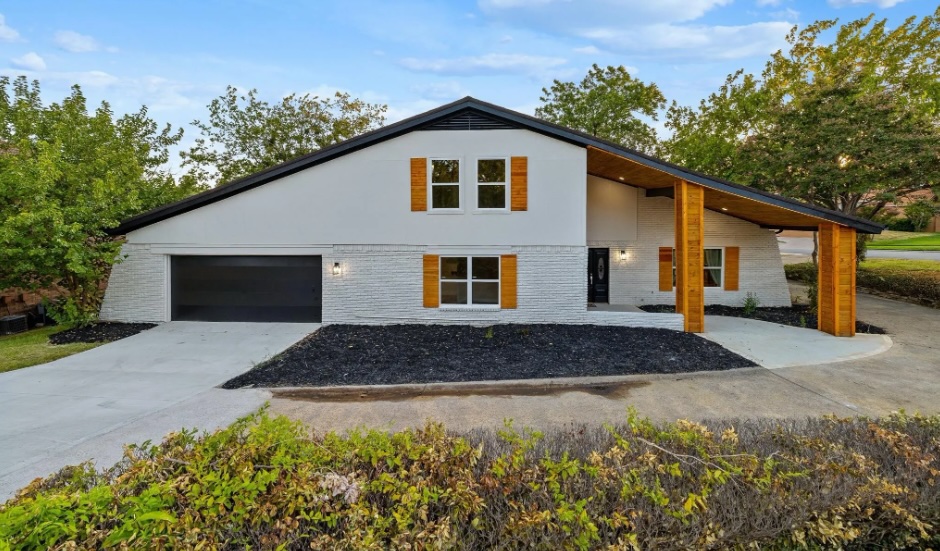Flipping houses is not for the faint of heart, no matter how fun or easy HGTV might make it seem.
One startup wants to make the process less complicated by offering a different way to borrow money to fund such a purchase. Founded in late 2020, Backflip offers a service to real estate investors for securing short-term loans. Beyond helping users secure financing, Backflip’s tech also helps investors source, track, comp and evaluate potential investments. Think of it as a cross between Zillow and Shopify.
Backflip originates loans through its subsidiary, Double Backflip, LLC. Interestingly, among its processing team are former employees of Better.com, a digital mortgage lender that has had its shares of ups and downs mostly related to its management and market conditions, but was lauded for its technology.
“We help investors source properties and curate their pipeline, analyze the deals that they might want to invest in, and hopefully make lower risk, better buying decisions,” CEO and co-founder Josh Ernst told TechCrunch in an interview.
Backflip launched a stealth private beta in 2021 that ran through the first half of 2022. Entering the market at a time when interest rates began to surge was challenging, said Ernst, who is a former investment banker and venture capitalist (he’s backed the likes of Polychain Capital). Yet the company managed to grow its revenue nearly 5x in 2023 and reach an annualized revenue of $10 million. It also claims to be “near profitability.”
And today, the company is announcing it has raised $15 million in a Series A funding round led by FirstMark Capital, a firm which invested early in the likes of Airbnb, Shopify and Pinterest, it has told TechCrunch exclusively.
Existing backers Vertical Venture Partners, LiveOak Venture Partners, Revel Partners, ECMC and the real estate company Crow Holdings also participated in the round, as did angel investors. In total, Backflip has raised $28 million in equity — and $67 million in debt financing.
To give some context on how much business has been conducted on the Backflip platform thus far, Ernst said that users analyze an average of $5 billion in properties each month on the platform and that the startup has funded more than 900 homes since its mid-2022 launch. Users have realized an average gross profit of $82,000 per property on the platform, and typically repay their loans in six months.
Most of Backflip’s loans are for 12 months (called a bridge loan) but are provided at a 2% to 4% higher interest rate than a typical residential loan, according to Ernst.
Investors can either sell the property and pay back Backflip or refinance and move into a longer-term loan through another lender.
“Our interest rates are higher than a retail bank, so our customer pays more for our loans than a bank,” Ernst said. “But what we’re doing is giving them money, underwriting the asset, underwriting the business plan and underwriting the person.”
The conventional (and cheaper) loan process, he said, is slower. And with Backflip, customers don’t need a W-2 to qualify for a loan. Plus, the company bundles in the rehab and construction loan so it’s easier and faster for an investor to move quickly through all these transactions.
“We underwrite business plans, assets and people, not just W-2 income… and we provide capital for home renovation and give credit for post-repair valuation,” Ernst said.
The company does not currently charge subscription fees. Its business model is to serve as a marketplace for the financial products. It makes money via take rate on the loans on the lending origination business, which it operates by partnering with capital providers.
“We’re helping to underwrite the properties and all the while, we’re getting more and more data that can then be used to make a quick and accurate underwriting decision on a specific loan product, which our members use to buy the property and renovate the property,” Ernst said.
So the investors get the money from Backflip, which originates the loans and then in turn sells the loans.
Adam Nelson, managing director at FirstMark, told TechCrunch that the opportunity for flipping is enormous. In the U.S., more than 50% of homes are over 40 years old, according to 2023 research from the National Association of Home Builders and “not up to the standard of new homeowners and institutional single-family residential buyers,” he said.
“The entrepreneurs in the ‘fix and flip’ industry provide an important service to bring the existing housing stock up to spec and put their own capital and sweat equity on the line to do it in both bull/bear housing markets,” he said.
Nelson has been impressed by the company’s ability to grow nearly 5x year over year “with an efficient <1x burn multiple,” he added.
”We view Backflip as the operating system for this $100 billion+ annual transaction market, with the potential to add value and monetize multiple different parts of the fix and flip transaction and ultimately institutionalize the asset class,” Nelson added.
Presently, the startup has 47 employees with headquarters in Dallas and Denver.
Want more fintech news in your inbox? Sign up for TechCrunch Fintech here.
Want to reach out with a tip? Email me at maryann@techcrunch.com or send me a message on Signal at 408.204.3036. You can also send a note to the whole TechCrunch crew at tips@techcrunch.com. For more secure communications, click here to contact us, which includes SecureDrop (instructions here) and links to encrypted messaging apps.































Comment